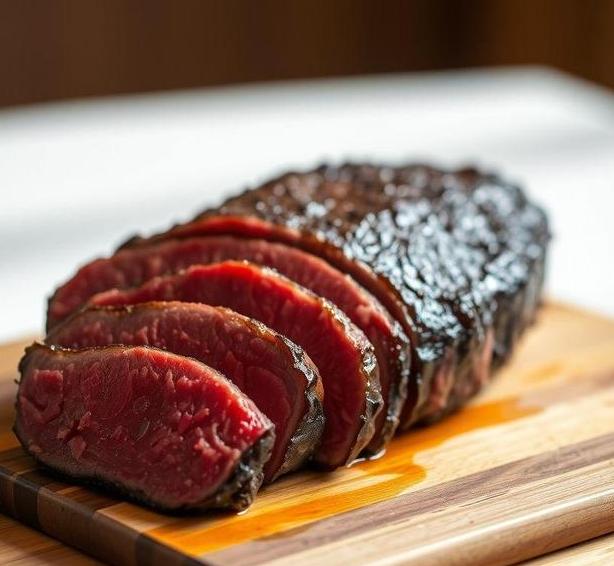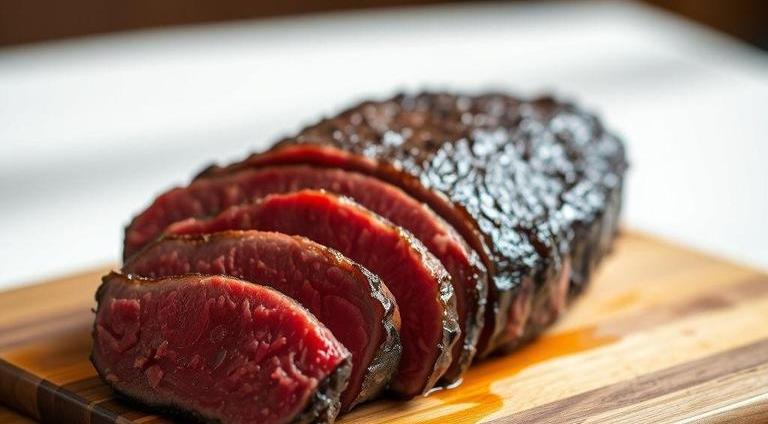Bear meat is one of those rare and unique types of wild game that many people find intriguing, both for its flavor and the adventure associated with hunting it. Whether you’re a seasoned hunter or someone who’s simply curious about trying new meats, bear meat can be a flavorful and robust option for your dinner table. But, like all meats, it’s important to handle it properly to ensure that it remains safe to eat. Improper handling or storage of bear meat can lead to spoilage, which could potentially make you sick.
In this detailed guide, we’re going to dive deep into everything you need to know about bear meat and how to keep it fresh and safe. From its shelf life to the signs of spoilage, we’ll give you all the information you need to handle, store, and enjoy bear meat properly.
Can Bear Meat Go Bad?
Absolutely, just like any other type of meat, bear meat can go bad if it’s not handled, stored, or cooked properly. In fact, bear meat is particularly susceptible to bacterial growth because it tends to be quite fatty and can be more prone to spoilage than other meats, like venison or beef. If you’re not careful, even a seemingly fresh piece of bear meat could turn unsafe to eat.
Here are some key reasons why bear meat can go bad:
- Bacteria: Like all raw meat, bear meat can harbor harmful bacteria like Salmonella or E. coli, which can multiply quickly if the meat is left at room temperature for too long.
- Fat content: Bear meat is often high in fat, which, if not stored correctly, can spoil faster than leaner meats.
- Improper storage: If the meat is not stored at the proper temperature or if it’s exposed to air for too long, it can go bad quickly.
- Gamey nature: Wild meats like bear tend to have a stronger flavor, which can be more sensitive to improper storage, causing the meat to develop an off-putting taste or odor.
Shelf Life For Bear Meat

The shelf life of bear meat depends on several factors, including how it’s stored, whether it’s cooked or raw, and the conditions in which it’s kept. Here’s a breakdown of how long bear meat typically lasts:
- Raw Bear Meat (Refrigerated): If you’re storing raw bear meat in the refrigerator (at 40°F or below), it will last for around 3-5 days. It’s important to keep it in an airtight container or wrap it tightly to prevent exposure to air, which can accelerate spoilage.
- Raw Bear Meat (Frozen): For longer storage, freezing raw bear meat is your best option. When frozen at 0°F or lower, bear meat can last anywhere from 6-12 months. However, for the best flavor and texture, it’s recommended to use it within 6 months.
- Cooked Bear Meat (Refrigerated): If you’ve already cooked the bear meat, it should be eaten within 3-4 days if kept in the refrigerator.
- Cooked Bear Meat (Frozen): For cooked bear meat, freezing is a great option as well. It will last for up to 3-4 months in the freezer, maintaining its taste and texture.
Common Signs Of Spoilage
Knowing how to identify spoiled bear meat is crucial for your health and safety. Spoiled meat can contain harmful bacteria, which can cause food poisoning or other serious illnesses. Here are the most common signs that your bear meat has gone bad:
Unpleasant Smell
- Fresh bear meat should have a mild, gamey odor, but if it smells sour, rancid, or unusually pungent, it’s time to toss it.
- If the smell is particularly overpowering, it’s a clear indication that bacterial growth has occurred, and the meat is no longer safe to eat.
Color Changes
- Bear meat should be a deep, dark red or reddish-brown when it’s fresh. If it starts to turn gray, green, or has any patches of black or brown, it’s a sign that it has begun to spoil.
- It’s important to note that a slight discoloration, especially after being frozen, doesn’t always mean the meat is bad, but significant changes in color should be taken seriously.
Slimy Or Sticky Texture
- A fresh cut of bear meat should feel firm to the touch and not have any sliminess or tackiness. If the surface of the meat feels slippery, or if the meat has a sticky residue when touched, bacteria may have started to break it down, and it’s best to dispose of it.
Off Taste
- If the meat looks fine but has a bitter, sour, or otherwise unpleasant taste when you cook it, that’s a sign of spoilage. Always take a small bite before cooking a larger portion to ensure it’s still fresh.
Mold Growth
- If you notice any fuzzy patches of mold on your bear meat, it’s time to throw it out. Mold can sometimes form on the surface, particularly if the meat has been improperly stored or exposed to moisture.
How To Store Bear Meat?

Proper storage is the key to keeping bear meat safe and fresh. Whether you’ve hunted your bear yourself or purchased it, knowing how to store it will ensure it doesn’t go bad too quickly.
Refrigeration (Short-Term Storage)
- Wrap it properly: Make sure the meat is wrapped tightly in plastic wrap, wax paper, or butcher paper, or placed in an airtight container.
- Keep it cold: The temperature of your refrigerator should be at or below 40°F (4°C).
- Use it quickly: Bear meat should be cooked or frozen within 3-5 days of being refrigerated to prevent spoilage.
Freezing (Long-Term Storage)
- Vacuum-seal it: For the best results, vacuum-seal the meat before freezing. This will help preserve its freshness and prevent freezer burn.
- Use freezer bags: If you don’t have a vacuum sealer, you can use heavy-duty freezer bags. Remove as much air as possible before sealing.
- Label and date: Always label the bag with the date you’re freezing the meat so you can keep track of how long it’s been stored.
- Store at 0°F or lower: Ensure your freezer is set to 0°F (-18°C) for optimal storage conditions.
Thawing
- Thaw in the fridge: The safest way to thaw frozen bear meat is in the refrigerator, as it keeps the meat at a consistent, safe temperature.
- Don’t leave it out: Avoid thawing meat at room temperature, as this can lead to bacterial growth.
Expert Tips
- Don’t Overcook: Bear meat can be tough if overcooked. Cooking it at lower temperatures for longer periods will help preserve its tenderness and flavor.
- Marinate for Tenderness: Bear meat can be quite gamey and lean, so marinating it overnight in a flavorful mixture can help soften the texture and enhance its taste.
- Use a Meat Thermometer: Always use a meat thermometer when cooking bear meat to ensure it reaches the appropriate internal temperature (at least 160°F for ground bear meat or 145°F for steaks and roasts).
- Cook It Thoroughly: Bear meat can carry parasites such as Trichinella, which can lead to trichinosis if not cooked thoroughly. Make sure the meat reaches a safe temperature to kill any potential parasites.
FAQs
How Long Does Bear Meat Last In The Fridge?
Bear meat can typically last 3-5 days in the refrigerator when stored properly at or below 40°F (4°C). It is important to keep it in an airtight container or tightly wrapped to prevent contamination.
Can Bear Meat Go Bad If Frozen?
When properly stored in a freezer at 0°F (-18°C), bear meat can last for up to 6-12 months. Freezing preserves the meat, but it may lose quality over time, becoming drier or tougher when thawed.
What Are The Signs That Bear Meat Has Gone Bad?
The primary signs that bear meat has gone bad include a sour or off smell, a slimy texture, or discoloration. If the meat becomes mushy or turns an unusual color, it is no longer safe to eat.
Is It Safe To Eat Bear Meat That Has Been Left Out Overnight?
No, bear meat should not be left out at room temperature for more than 2 hours, as bacteria can multiply rapidly. If left out overnight, it should be discarded to avoid the risk of foodborne illness.
Can Bear Meat Spoil If It Is Improperly Handled After Hunting?
Yes, improper handling, such as not chilling the meat immediately after field dressing, can lead to spoilage. It is crucial to keep the meat cool and clean during the entire process, from field to table.
How Can I Tell If Bear Meat Has Been Stored Too Long In The Freezer?
Signs of freezer burn or a change in texture (dryness or toughness) indicate that the bear meat has been stored too long. While freezer-burned meat is still safe to eat, it may not be as enjoyable.
Does Cooking Bear Meat Affect Its Shelf Life?
Yes, cooked bear meat will typically last 3-4 days in the refrigerator. It can also be frozen for longer storage, but it should be consumed within 3 months for the best flavor and texture.
Can Bear Meat Go Bad In A Vacuum-sealed Bag?
Vacuum sealing can help extend the shelf life of bear meat by reducing exposure to air and slowing the growth of bacteria. When stored correctly in the freezer, vacuum-sealed bear meat can last up to a year.
What Are The Risks Of Eating Spoiled Bear Meat?
Eating spoiled bear meat can lead to food poisoning or infection, with symptoms like nausea, vomiting, diarrhea, and abdominal pain. The meat may contain harmful bacteria like Salmonella or E. coli, which can cause serious illness.
Can Bear Meat Be Safely Stored In A Cooler While Camping Or Hunting?
Yes, bear meat can be stored in a cooler as long as the temperature is kept below 40°F (4°C). It’s important to use ice packs or frozen gel packs to maintain a consistently cool environment. The meat should be consumed or frozen as soon as possible.